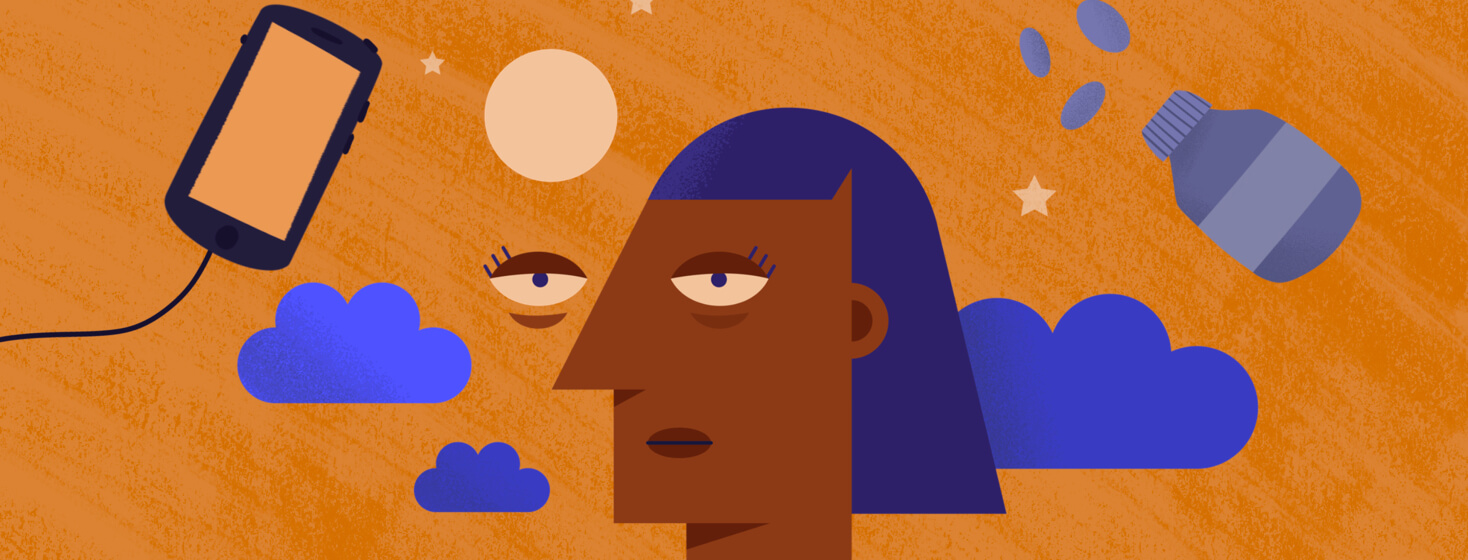My World of Migraine and Insomnia
Migraine and insomnia can be interdependent. A migraine can cause an individual to be unable to sleep. Yet not getting enough sleep cause be a trigger for migraine for many individuals. There are medicinal options available to help with insomnia. Additionally, some sleep hygiene techniques can have positive outcomes.
My migraines and insomnia
My migraines became chronic in 2009 when I was finishing my undergrad studies. I honestly cannot remember exactly when the insomnia started but I know it was after this point.
Migraine medicine made me sleepy
Originally when I started using migraine abortive medications, they made me sleepy. I could at least take a nap after taking the medicine, which could have been beneficial. Unfortunately, that effect did not last for me. I do know people who have had migraines longer than I have been alive and migraine medicine still makes them sleep.
My insomnia
My insomnia comes in the form of difficulty falling asleep and staying asleep. It took me some time to find a doctor that would take my insomnia seriously. I will always remain surprised by how many doctors are hesitant about treating insomnia.
Sleeping medicine experiences
Since I have been dealing with insomnia for so long, I have tried so many different sleep medications. Most medications are intended to help individuals either fall asleep or stay asleep. This can complicate treatment for those individuals who suffer from both issues like I do.
Prescription medications
Some of the prescription medications worked for me initially than slowly stopped working, whereas others were not effective at all. I have tried prescriptions specifically designed for insomnia such Ambien, Belsomra, and Sonata. I have also tried medications that helped treat insomnia as an off label use. There are many antidepressants that can be used to increase sleep, such as Amitriptyline and Trazadone. Medications in the benzodiazepine family, like Alprazolam, can be used to treat insomnia for a short period of time.
Melatonin
I tried the ‘normal’ dose of melatonin a few years ago and did not help me at all. Normally they suggest you start with 1 mg and move up to 5 mg. I recently had a friend give me a 12 mg dissolvable melatonin to try out. Much to my surprise, I slept better that night than I had in years, especially without a prescription sleep aid.
Bedroom tricks
There are some small things that can help improve your sleep. Sleep hygiene pertains to the behaviors and habits that help you to have a good night of sleep. Something I have noticed to have a huge effect on me being able to fall asleep is the darkness in the bedroom. The darker the bedroom, the better it is in my opinion. I actually have an all-purpose foam insulation panel cut over my windows. This helps to keep my room darker and colder.
Removing light producing technology
I also no longer have things that produce light in my room. This means no television, no alarm clock, etc. Additionally, I only get in my bed for two things, sex and sleep. I do not lay in bed to read or anything along those lines. This helps my brain correlate the bed/bedroom with sleep.
Putting my phone on Do Not Disturb
My family can be a pretty chatty group, especially in a group text message situation. On my iPhone, I am able to set ‘favorite’ contacts and place my phone on Do Not Disturb. This feature allows those who are designated as a favorite to be able to call my phone and get through to me. It also prevents random calls and text messages from making notification noises. This is helpful because my sleep is not disturbed unless it is an emergency. Personally, once I am woken up, I have an extremely hard time being able to fall back asleep.
Quality sleep impacts migraine
An individual being able to attain quality sleep can be an important factor in managing migraines. While some doctors might be hesitant to treat insomnia, it is imperative to not give up on getting care for it. My migraine specialist would not even discuss it with me. I ended up working some with my primary care and then my psychiatrist.
What helps with your sleep?

Join the conversation